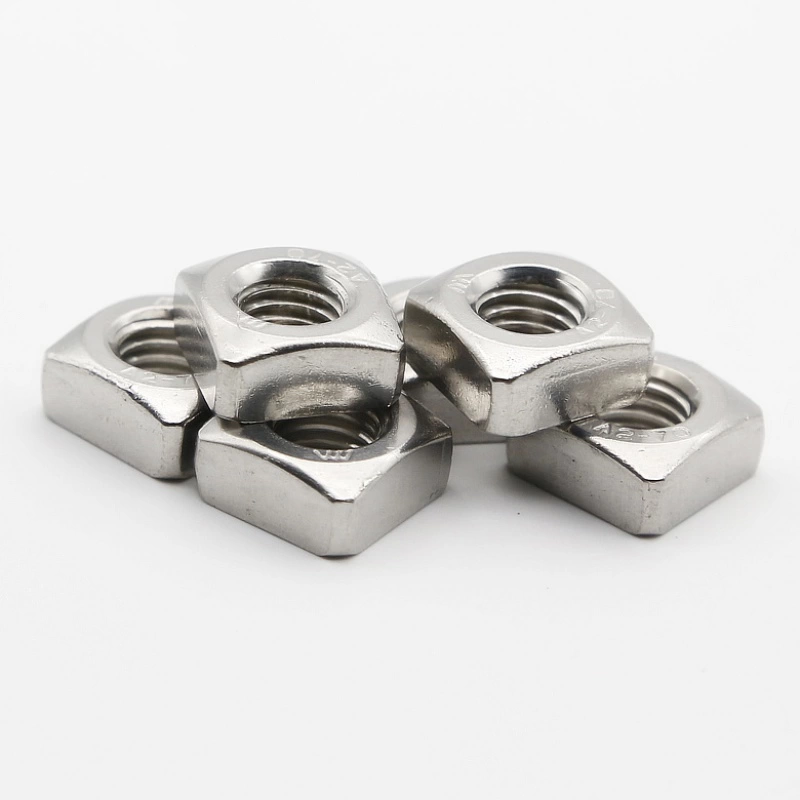

Durable and Corrosion-Resistant Flange Nuts Made from Quality Stainless Steel for Versatile Applications
अगस्त . 05, 2024 18:26 Back to list
Durable and Corrosion-Resistant Flange Nuts Made from Quality Stainless Steel for Versatile Applications
Understanding Stainless Steel Flange Nuts Features and Applications
Stainless steel flange nuts are specialized fasteners designed to provide secure and robust connections in various applications, ranging from automotive to industrial machinery. A flange nut is characterized by a wider circular base, which acts like a washer and distributes the load over a larger surface area. This feature not only enhances the nut’s gripping power but also minimizes the risk of loosening due to vibration.
Composition and Benefits
The primary material for flange nuts is stainless steel, known for its superior corrosion resistance and strength. Stainless steel, primarily composed of iron, chromium, and, in some cases, nickel, creates a strong oxide layer that protects the underlying metal from rust and degradation. This property makes stainless steel flange nuts particularly suitable for applications in harsh environments, including marine, chemical processing, and construction sectors where exposure to moisture, chemicals, and varying temperatures is common.
One of the significant advantages of stainless steel flange nuts is their durability. Unlike traditional nuts, which can wear down over time, flange nuts maintain their structural integrity, ensuring longevity in fastened assemblies. Furthermore, the easier installation process owing to the flange design means they can often be installed with less effort and without the need for additional washers, saving both time and cost during assembly.
Design Variations
Stainless steel flange nuts come in various designs and sizes, catering to different industrial needs. Some common types include serrated flange nuts, which have teeth on the flange surface that dig into the material being fastened. This design significantly improves grip and prevents loosening in dynamic applications. Another design variation is the hex flange nut, which features six flat sides, facilitating easy installation with a wrench.
stainless steel flange nuts

In addition to these variations, manufacturers often provide flange nuts in different grades of stainless steel. For example, A2 stainless steel is commonly used for general applications, while A4 stainless steel offers enhanced resistance to chloride environments, making it ideal for marine applications.
Applications
The versatility of stainless steel flange nuts makes them suitable for a wide range of applications. In the automotive industry, they are commonly used for securing components such as exhaust systems, suspension parts, and engine assemblies. In construction, these nuts are frequently utilized in structural steel applications, offering reliable fastening for columns, beams, and trusses.
Moreover, stainless steel flange nuts are essential in the manufacturing of machinery and equipment. They help secure parts that are subject to high levels of stress, such as conveyor systems, pumps, and compressors. Their ability to withstand high temperatures also makes them a preferred choice in the energy sector, particularly in the production of power plants and oil rigs where equipment is exposed to extreme conditions.
Conclusion
In summary, stainless steel flange nuts are indispensable components across numerous industries due to their unique features, durability, and versatility. Their design enhances the performance of fastened joints, making them superior alternatives to traditional nuts in many scenarios. As industries continue to evolve and demand stronger, more reliable fastening solutions, the relevance of stainless steel flange nuts is expected to grow, ensuring their position as a critical element in successful engineering and manufacturing processes.
Latest news
-
Best Self Tapping Screws for Drywall - Fast & Secure Installation
NewsJul.31,2025
-
High-Strength Hot Dip Galvanized Bolts-Hebei Longze|Corrosion Resistance&Customization
NewsJul.31,2025
-
Hot Dip Galvanized Bolts-Hebei Longze Metal Products|Corrosion Resistance&High Strength
NewsJul.31,2025
-
Hot Dip Galvanized Bolts-About LongZe|High Strength, Corrosion Resistance
NewsJul.30,2025
-
High-Strength Hot Dip Galvanized Bolts - Hebei Longze | Corrosion Resistance, Customization
NewsJul.30,2025
-
Hot Dip Galvanized Bolts-Hebei Longze|Corrosion Resistance&High Strength
NewsJul.30,2025

